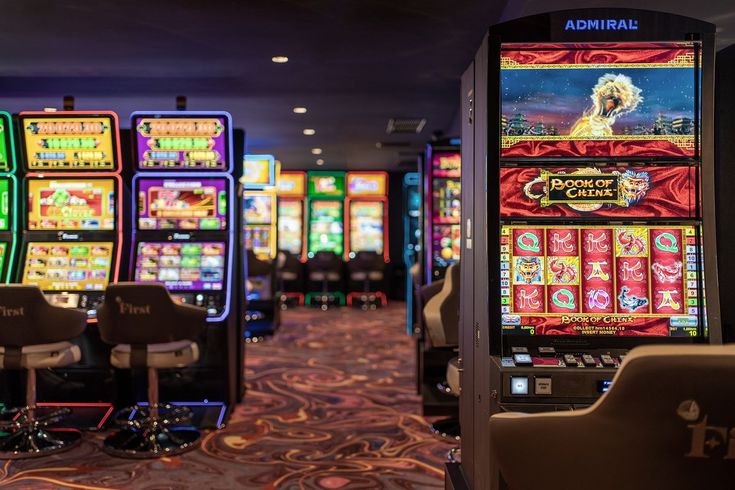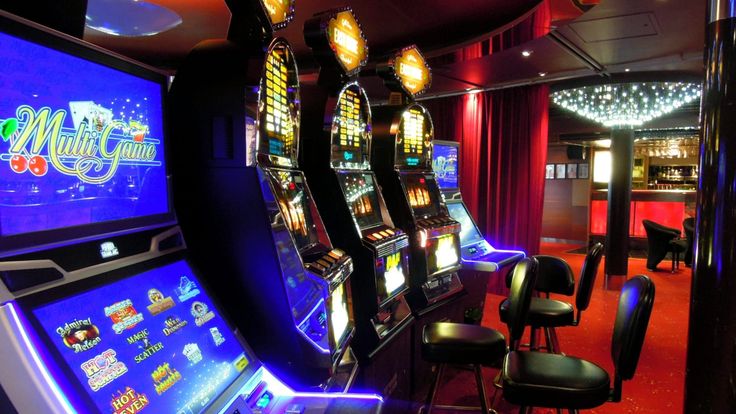Introduction
Slot machines are a staple of casinos worldwide, captivating players with their bright lights, engaging sounds, and the tantalizing possibility of winning big. Despite their widespread popularity and seemingly innocent entertainment value, slot machines can lead to severe addiction problems for some individuals. This article explores the psychology behind slot machine addiction, examining the underlying mechanisms, contributing factors, and potential solutions for those affected.
1. Understanding Slot Machines
1.1 How Slot Machines Work
Slot machines are designed to be visually appealing and engaging, but they operate based on a few key principles:
- Random Number Generators (RNGs): Slot machines use RNGs to ensure that every spin is independent and random. This means that each spin has an equal chance of winning or losing, regardless of previous outcomes.
- Paylines and Payouts: Slot machines have various paylines, which are the patterns that determine winning combinations. Each machine has its own payout structure, specifying the odds of hitting a winning combination and the corresponding payouts.
- Bonus Features: Many modern slot machines include bonus features such as free spins, multipliers, and interactive mini-games, which are designed to enhance player engagement and increase the game’s entertainment value.
1.2 The Allure of Slot Machines
Several factors contribute to the appeal of slot machines:
- Sensory Stimulation: Slot machines are designed to engage multiple senses with their bright lights, sounds, and animations. This sensory overload can create a sense of excitement and anticipation.
- Instant Gratification: Unlike some other casino games that require skill and strategy, slot machines provide immediate feedback. Players can quickly see the results of their bets, creating a fast-paced and rewarding experience.
- Jackpot Potential: The allure of hitting a large jackpot or winning a substantial prize can be a powerful motivator. The possibility of a life-changing win keeps players engaged and hopeful.
2. The Psychology of Gambling Addiction
2.1 Understanding Gambling Addiction
Gambling addiction, or gambling disorder, is characterized by an inability to control gambling behavior despite negative consequences. This condition can lead to financial problems, emotional distress, and strained relationships. Slot machine addiction is a specific form of gambling addiction that involves a compulsive need to play slot machines.
2.2 Psychological Mechanisms Behind Slot Machine Addiction
Several psychological mechanisms contribute to slot machine addiction:
- Variable Reinforcement Schedule: Slot machines use a variable reinforcement schedule, meaning that rewards are given out at unpredictable intervals. This unpredictability creates a sense of excitement and anticipation, which can lead to compulsive play.
- Near-Miss Effect: Slot machines often produce “near-miss” outcomes, where players come close to winning but do not actually win. Near-misses can create a false sense of winning and encourage continued play, as players believe they are close to a win.
- Illusion of Control: Some players may develop an illusion of control, believing that their actions or strategies can influence the outcome of the game. This belief can reinforce their gambling behavior and make it more difficult to stop.
2.3 Cognitive Distortions and Beliefs
Certain cognitive distortions and beliefs can contribute to slot machine addiction:
- Gambler’s Fallacy: The gambler’s fallacy is the belief that previous losses or wins affect future outcomes. In reality, each spin of the slot machine is independent and random.
- Overestimation of Skill: Some players may overestimate their ability to influence the outcome of the game or to predict wins. This overestimation can lead to increased gambling and a greater risk of addiction.
- Chasing Losses: Chasing losses occurs when players continue to gamble in an attempt to recover lost money. This behavior can lead to escalating losses and a deeper addiction.

3. Factors Contributing to Slot Machine Addiction
3.1 Personal Factors
Certain personal factors can make individuals more susceptible to slot machine addiction:
- Genetics: Research suggests that genetic predispositions can influence susceptibility to gambling addiction. Individuals with a family history of gambling problems may be at higher risk.
- Mental Health Issues: Co-occurring mental health conditions such as depression, anxiety, or substance abuse can increase the risk of developing a gambling addiction.
- Personality Traits: Traits such as impulsivity, risk-taking, and sensation-seeking can contribute to a higher likelihood of developing an addiction to slot machines.
3.2 Environmental Factors
Environmental factors can also play a significant role in the development of slot machine addiction:
- Accessibility: The availability and accessibility of slot machines, both in physical casinos and online platforms, can increase the likelihood of addiction. Easy access can lead to more frequent gambling and a higher risk of developing problematic behavior.
- Social Influence: Social factors, such as peer pressure or exposure to gambling behavior within one’s social circle, can contribute to the development of gambling addiction. Seeing others engage in gambling can normalize the behavior and make it more appealing.
- Marketing and Advertising: Marketing strategies used by casinos and online gambling platforms often emphasize the excitement and potential rewards of slot machines. These marketing tactics can lure individuals into gambling and increase the risk of addiction.
4. Identifying and Addressing Slot Machine Addiction
4.1 Signs of Slot Machine Addiction
Recognizing the signs of slot machine addiction is crucial for addressing the issue:
- Increased Time and Money Spent: Spending excessive amounts of time and money on slot machines, often at the expense of other responsibilities and activities, is a common sign of addiction.
- Neglecting Responsibilities: Prioritizing slot machine play over personal, professional, or financial responsibilities can indicate a gambling problem.
- Preoccupation with Gambling: Constantly thinking about slot machines, planning future gambling sessions, or feeling a strong urge to play are signs of addiction.
- Emotional Distress: Experiencing feelings of guilt, anxiety, or depression related to slot machine play can be a sign of problematic behavior.
4.2 Seeking Help and Treatment
Addressing slot machine addiction requires a comprehensive approach:
- Counseling and Therapy: Professional counseling and therapy can help individuals address the underlying issues contributing to their addiction. Cognitive-behavioral therapy (CBT) is often used to help individuals change unhealthy thinking patterns and behaviors related to gambling.
- Support Groups: Support groups such as Gamblers Anonymous provide a supportive environment where individuals can share their experiences and receive support from others facing similar challenges.
- Self-Exclusion Programs: Many casinos and online gambling platforms offer self-exclusion programs that allow individuals to voluntarily exclude themselves from gambling activities for a specified period.
4.3 Preventive Measures
Preventing slot machine addiction involves a combination of personal awareness and external support:
- Setting Limits: Setting personal limits on time and money spent on slot machines can help prevent excessive gambling.
- Education and Awareness: Educating oneself about the risks of gambling addiction and understanding the mechanisms behind slot machines can promote responsible gambling behavior.
- Seeking Early Intervention: Recognizing the signs of gambling addiction early and seeking help can prevent the problem from escalating.
5. FAQs
Q1: How can I tell if I or someone I know has a slot machine addiction?
A1: Signs of slot machine addiction include spending excessive time and money on slot machines, neglecting responsibilities, preoccupation with gambling, and experiencing emotional distress related to gambling. If these signs are present, seeking help from a professional may be necessary.
Q2: What are some effective treatments for slot machine addiction?
A2: Effective treatments for slot machine addiction include counseling and therapy (e.g., cognitive-behavioral therapy), support groups (e.g., Gamblers Anonymous), and self-exclusion programs offered by casinos and online platforms. A comprehensive approach addressing both psychological and behavioral aspects is often most effective.
Q3: Can slot machine addiction be prevented?
A3: Prevention strategies include setting personal limits on gambling activities, educating oneself about the risks of addiction, and seeking early intervention if signs of addiction emerge. Awareness and responsible gambling practices can help reduce the risk of developing an addiction.
Q4: How does the variable reinforcement schedule in slot machines contribute to addiction?
A4: The variable reinforcement schedule in slot machines creates unpredictability in rewards, which can lead to increased excitement and anticipation. This unpredictability can reinforce gambling behavior and make it more difficult for individuals to stop playing.
Q5: Are there any resources available for individuals struggling with slot machine addiction?
A5: Yes, there are several resources available, including professional counseling services, support groups like Gamblers Anonymous, and self-exclusion programs offered by casinos and online gambling platforms. Seeking help from these resources can provide support and assistance in overcoming addiction.
Conclusion
The allure of slot machines, combined with their psychological mechanisms and external influences, can lead to significant addiction problems for some individuals. Understanding the psychology behind slot machine addiction is crucial for addressing and preventing this issue. By recognizing the signs of addiction, seeking appropriate treatment, and implementing preventive measures, individuals can work towards overcoming addiction and maintaining a healthier relationship with gambling.
Slot machine addiction is a serious issue that requires attention and intervention. By fostering awareness, promoting responsible gambling practices, and offering support to those in need, we can work towards minimizing the negative impact of slot machine addiction and ensuring that gambling remains a safe and enjoyable activity for all.
Slot machines are designed with specific elements that trigger addictive behavior in players. The flashing lights and colorful symbols create a sense of excitement and anticipation, drawing players in for the next spin. 8kbet The intermittent reinforcement schedule, where wins are unpredictable, keeps players hooked as they constantly seek that next big win.
